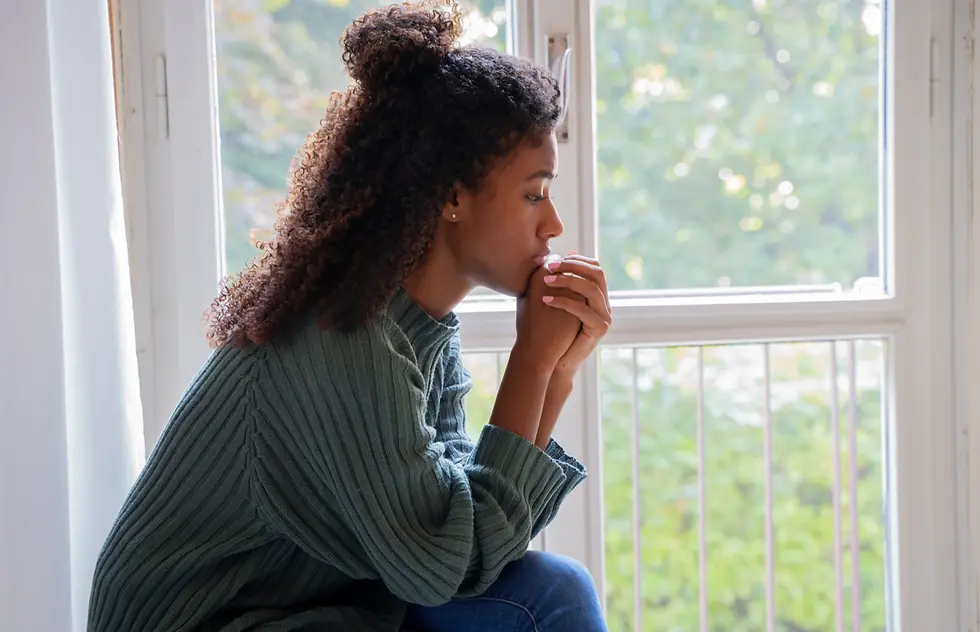Social Awkwardness How to Overcome Social Awkwardness
- Beverley Sinclair Hypnotherapist

- May 13, 2024
- 3 min read
If you’re frequently the person who is tripping over themselves or sticking their foot in their mouth saying things they don’t mean to say, you might feel as though you’re socially awkward.
And often you’ll make things even more awkward by drawing attention to how awkward you are.
Being socially awkward is not a diagnosis or disorder—and we will all be a little socially awkward at times.
But, what does it mean to be socially awkward?
One study looked at narratives of socially awkward situations to find the common thread. In most of the situations, the awkwardness involved some sort of perceived moral or social transgression that intensified the social situation and directed perceptions of the social behaviours.
The awkwardness was sometimes sudden, but often it is from something latent—some kind of tension that has been building. Those behaviours displayed awkwardness through anxious, hesitant or avoidant actions or body language cues.
Now that you have an idea of what social awkwardness may be defined as, here are some tips to help you overcome your fear of it.
How to Overcome Social Awkwardness
Social awkwardness may come and go, but the following tips will help you deal with it. However, if you feel like your perceived social awkwardness is profoundly affecting your life, you may want to talk to a therapist.
You may be dealing with social anxiety disorder and they can equip you with tools on how to cope with the awkwardness or anxiety.
Stay Present With the Discomfort
Your urge may be to check in with yourself, says“Accept that—and then redirect your attention and behaviour to the other person. Socially effective people show interest in others and their interactions.”
You might do this by asking someone questions about themselves or sharing some information. This will serve to rebalance the situation and shift focus away from yourself.
Often in these situations, people want to resolve them immediately because they are so uncomfortable. However, all feelings—comfortable or uncomfortable—end, and ruminating on it will only extend the feeling longer than sitting with it would.
Decide How to Respond
There are two major ways to respond to social awkwardness. One way is to just play it off like it never happened. The other is to laugh at yourself. Might this draw more attention to it? Maybe, but so what if it does?
Science shows that people who can poke a little bit of fun at themselves are generally more resilient and that, in awkward situations, addressing it can often restore the relative level of comfort that was present before.
Don't Let It Define You
So you tripped over your own feet and fell while you were on a date with someone you were interested in. OK, it happens.
Often, when we experience a moment or situation of social awkwardness, we quickly spiral and automatically assign our worst fear to the event as meaning. No, you are not inherently unlovable because you happened to fall over yourself.
Find the Source of Shame
Often, feelings of social awkwardness come from a source of shame—that one is not handling themselves as they “should.”
Consider yourself an investigator—where is this feeling of “should” coming from? Does it go back to your childhood? Is there a certain teacher or boss voice you’re hearing in your heart?
Examine Your Perfectionism
Your (perceived) social awkwardness may stem from a deep-seated feeling of perfectionism, where you feel like you should be able to handle yourself in any social situation.
Do You Feel a Need to Be Perfect? Sometimes, these feelings of social awkwardness can come from someone trying so hard to be perfect that they do the very thing they’re afraid of.
Look At It as a Learning Opportunity
You can look at it as a learning experience, says Minden. “Is it driven by how you think or feel about a situation? Or does it have more to do with the way you conduct yourself?” He suggests thinking about what a more comfortable social experience might feel like.







































Comments